The Fairtrade Movement – Community, Sustainability and Fairness
We have all seen the Fairtrade logo and assumed that it entails exactly what the name implies, fair trade. While this is true. The Fairtrade movement entails so much more than just trading fairly.
How it all started
The Fairtrade Foundation was established in 1992 in the UK. This was the result of many and persistent appeals from coffee farmers in Mexico who ran small scale operations.
The movement was founded by numerous organizations such as CAFOD, Oxfam, Christian Aid, the World Development Movement, and the National Federation of Women’s Institutes.
Some of these organisations had in the past separately worked for Fairtrade. But it was in 1992 that they all came together and established the Fairtrade Foundation.
Two years after the movement was established, in 1994, the first Fairtrade certified products were sold in the UK and it was first chocolate, followed by coffee and tea.
It is important to note that Fairtrade International and the Fairtrade Foundation are not necessarily the same thing. Fairtrade International is the association consisting of 22 member organizations, three producer networks, and 19 national Fairtrade organisations. The Fairtrade Foundation represents Britain in the international association.
The Key Pillars of the Fairtrade Movement:
The Fairtrade movement is based on 4 key pillars which are outlined as:
Social Development
This means that according to the Fairtrade standards the producers must establish a democratic structure within their operations and make sure that the members all have the access to a democratic decision-making process. Transparency and prohibition of any sort of discrimination are also fundamental aspects.
Furthermore, if the organization includes hired workers, they must comply with the Fairtrade standards and provide security and social rights to their employees. This means that they must offer, among many other things: collective bargaining processes, freedom of association of the workforce, conditions of employment exceeding legal minimum requirements, adequate occupational safety and health conditions
Economic Development
One of the most important aspects of the Fairtrade movement is the Fairtrade Minimum Price and the Fairtrade Premium, which is paid by the purchaser.
– Fairtrade Minimum Price – is the price that is deemed fair for the producers to be able to cover their costs but it should also cover sustainable production.
– Fairtrade Premium – this premium is meant to be spent on improving the quality of lives for the producers and their workers. The purpose of this money is that it should be invested in crucial areas such as health, environment, education, etc.
Environmental development
There are very clear standards provided by the Fairtrade movement regarding farming that is sustainable and not detrimental to the environment. For instance, the producers are not to use GMOs in the production, waste management needs to be conducted safely and properly, the use of chemicals is to be minimized, and there needs to be proper maintenance of soil and water resources.
Prohibition of forced labour and child labour
Forced and/or child labour is not accepted in any case or circumstance by the Fairtrade movement.
Coliman Allfresch
For us, at Coliman Allfresch the Fairtrade initiative is a trading partnership, based on dialogue, transparency and respect. It is clear that the more we work towards a fair trade that benefits every single individual in the supply chain, the more we contribute to a sustainable future in all crucial areas.
Not only are we Fairtrade certified, but we are also certified by OrganicEU, GLOBALG.A.P, Rainforest Alliance, USDA Organic, Primus GFS, and Bioagri.
Furthermore, at Coliman Allfresch we also work according to our own standards for sustainability which benefit our producers and the environment.
Our Initiatives
We work according to our triple bottom impact strategy and the absolute main focus is sustainability. Which then divides into the three sub-categories: health and community, natural environment, and economic vitality. These are also the areas where we have focused our initiatives.
Coliman Allfresch has invested in the improvement of health care technology and specialist departments to help prevent and treat diseases like cancer or other chronic diseases but also mental health.
Other initiatives have been focused on investing in the rescue and maintenance of the mangrove by adopting 500 hectares of Mangrove which are part of an important ecosystem in the area.
At Coliman Allfresch we are constantly looking for new ways to make sure our producers and their workers can maintain a decent and dignified livelihood and more importantly live a just and dignified life.
That’s why we ask you to join us in this mission and help us to help them by always choosing Fairtrade and organic produce.

